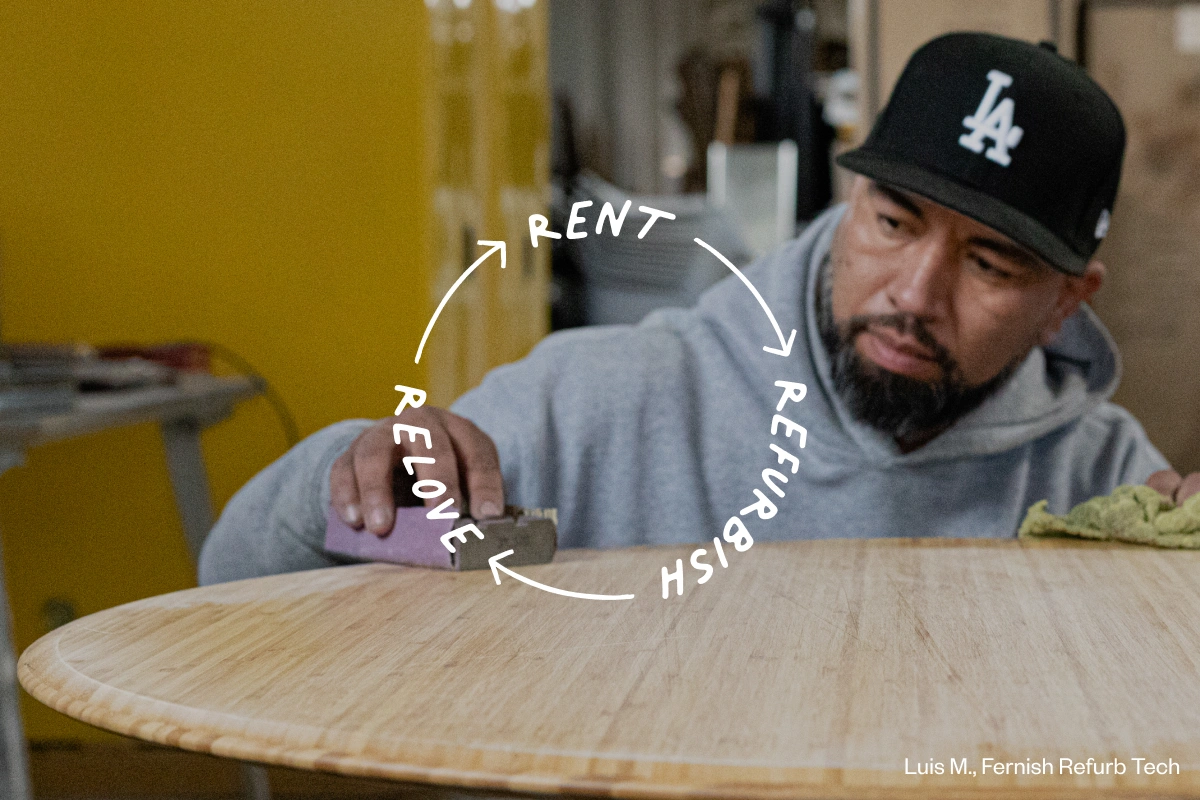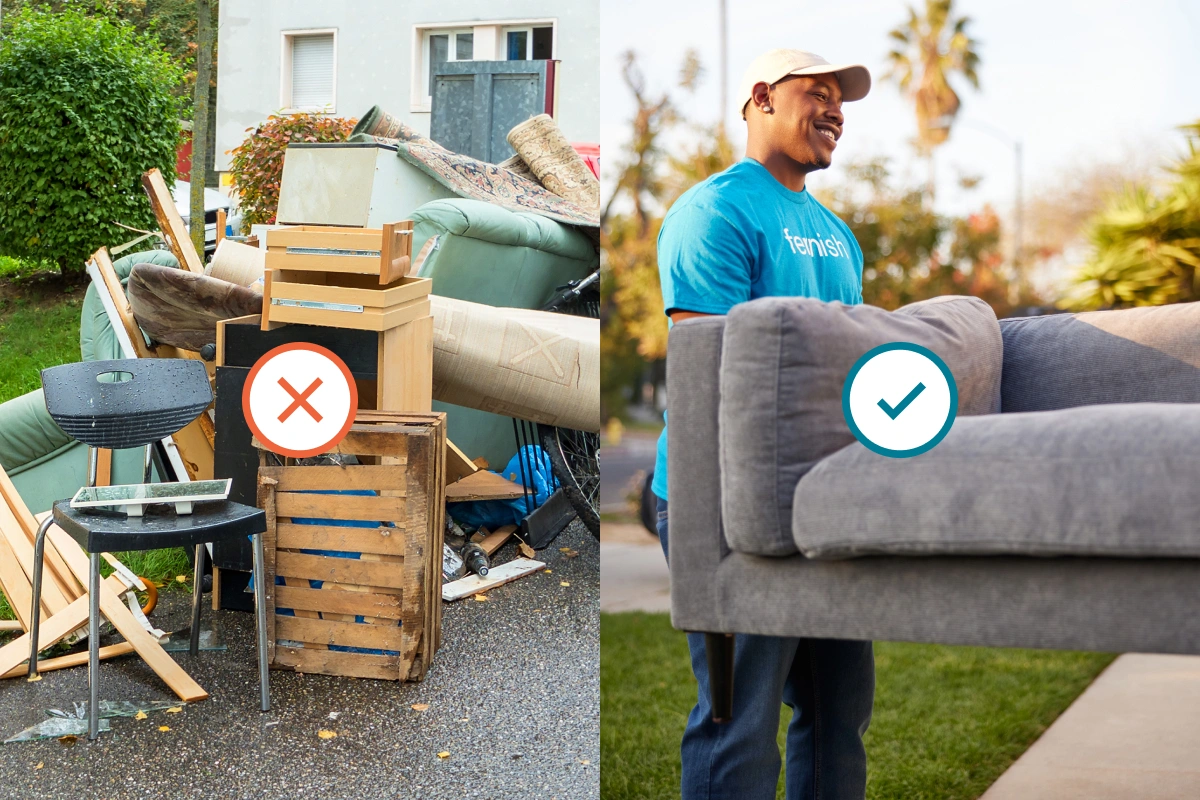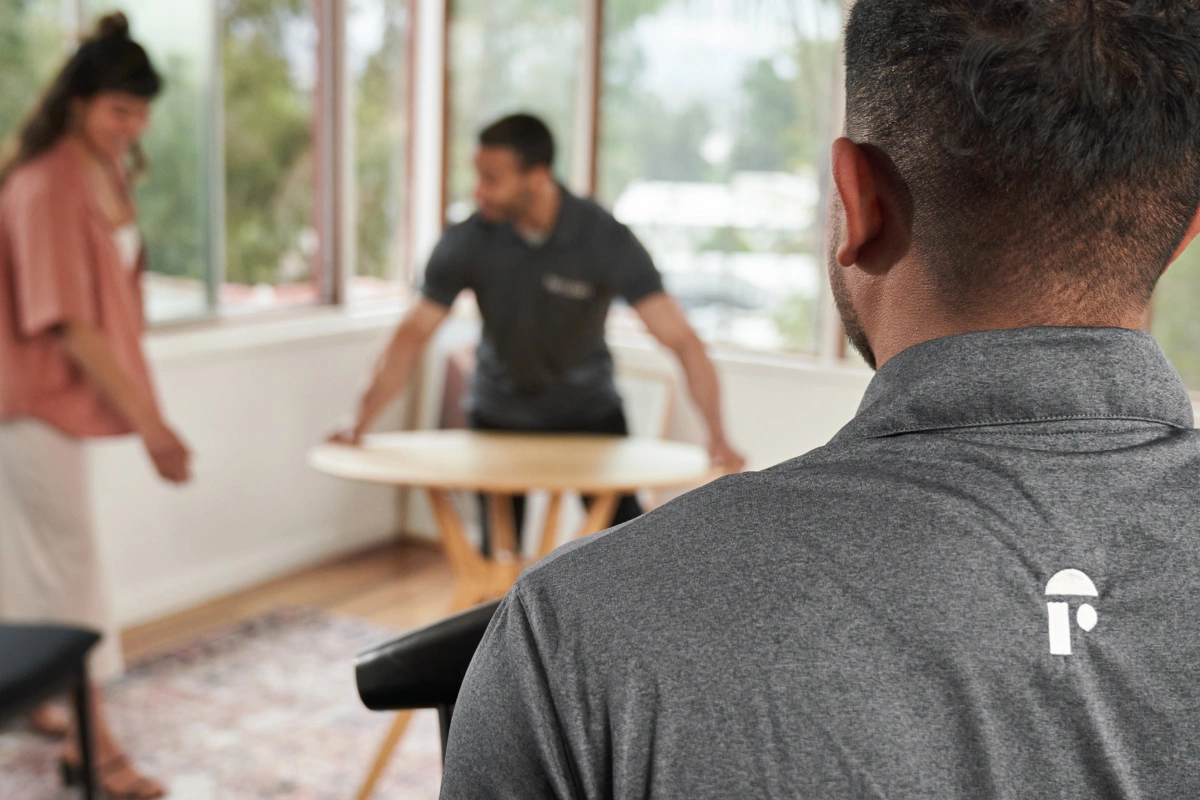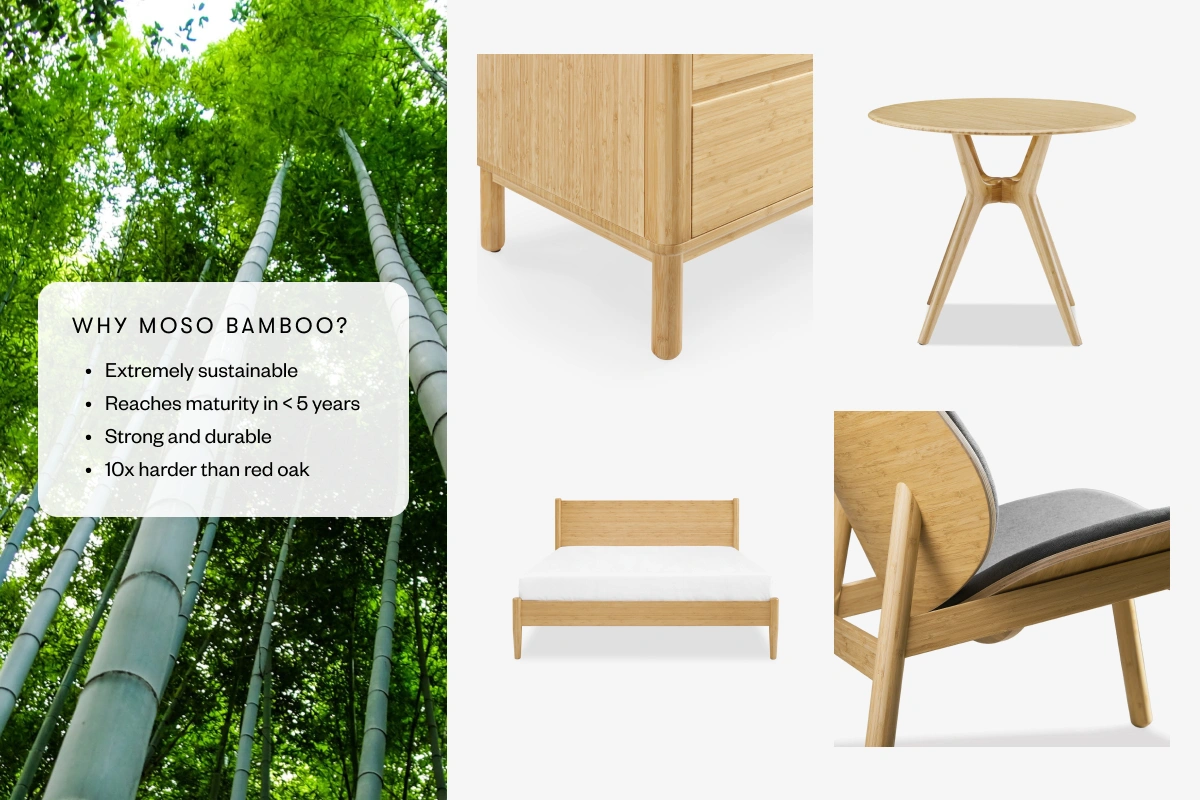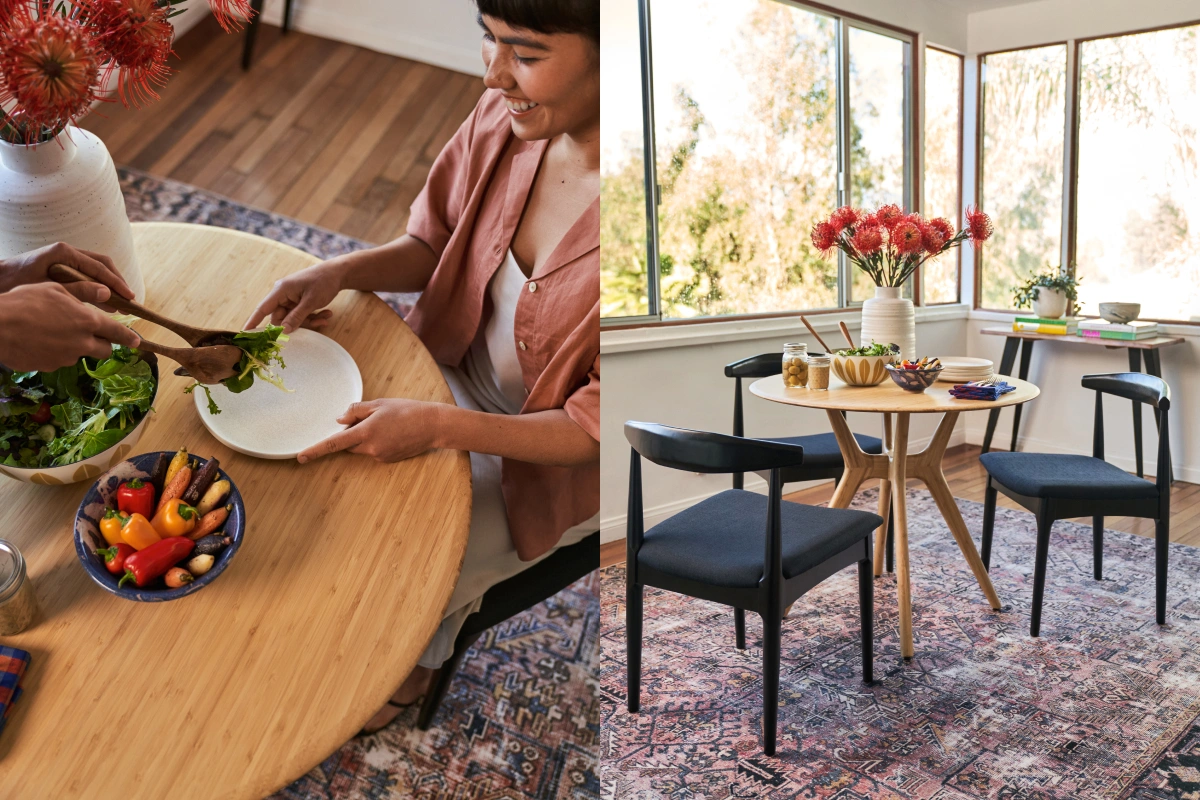So, what exactly is a "Circular Economy?"
Everyone’s talking about the circular economy and saying it’s the way of the future. So what exactly does it mean and how is it better for our planet? In celebration of Earth Day, let’s get into it!
In a traditional linear business model, products are made, used and thrown away. A circular business model takes a different approach, using inventive ways to offer services that allow products to remain in circulation much longer, extending their lifespan and reducing waste.
At Fernish, we believe you can do something that is good for your business and good for the environment, which is why circularity is core to our model. One of the key benefits of refurbishing high-quality furniture is that it minimizes the need for cheaply-made, “fast furniture” which is a key contributor to the nearly 10 million tons of furniture that end up in landfills every year. In addition to helping to curb waste, this reduction in demand for new furniture means fewer resources are used in the manufacturing process and fewer emissions are produced during the transportation of materials.
Fernish's business model also prioritizes finding opportunities to source items made from more sustainable materials where possible. For example, we just launched a line of new products made of Moso bamboo which reaches maturity in less than 5 years and is 100x harder than red oak. This focus on quality reduces the need for frequent repairs and replacements and mitigates the impact on resources and emissions.
Another benefit of embracing the circular economy is that it encourages responsible consumption. By renting furniture, customers can enjoy high-quality furniture without the high price tag and long-term commitment that come with traditional way of buying furniture which can lead to a rush to resell or discard when plans change. This approach reduces overconsumption and allows for more mindful utilization of resources.
We hope Fernish inspires other companies to embrace the principles of a circular business model in an effort to create a more sustainable future. By promoting the reuse of resources, reducing waste and encouraging responsible consumption, we can all endeavor to make a positive impact on the environment and society as a whole.
